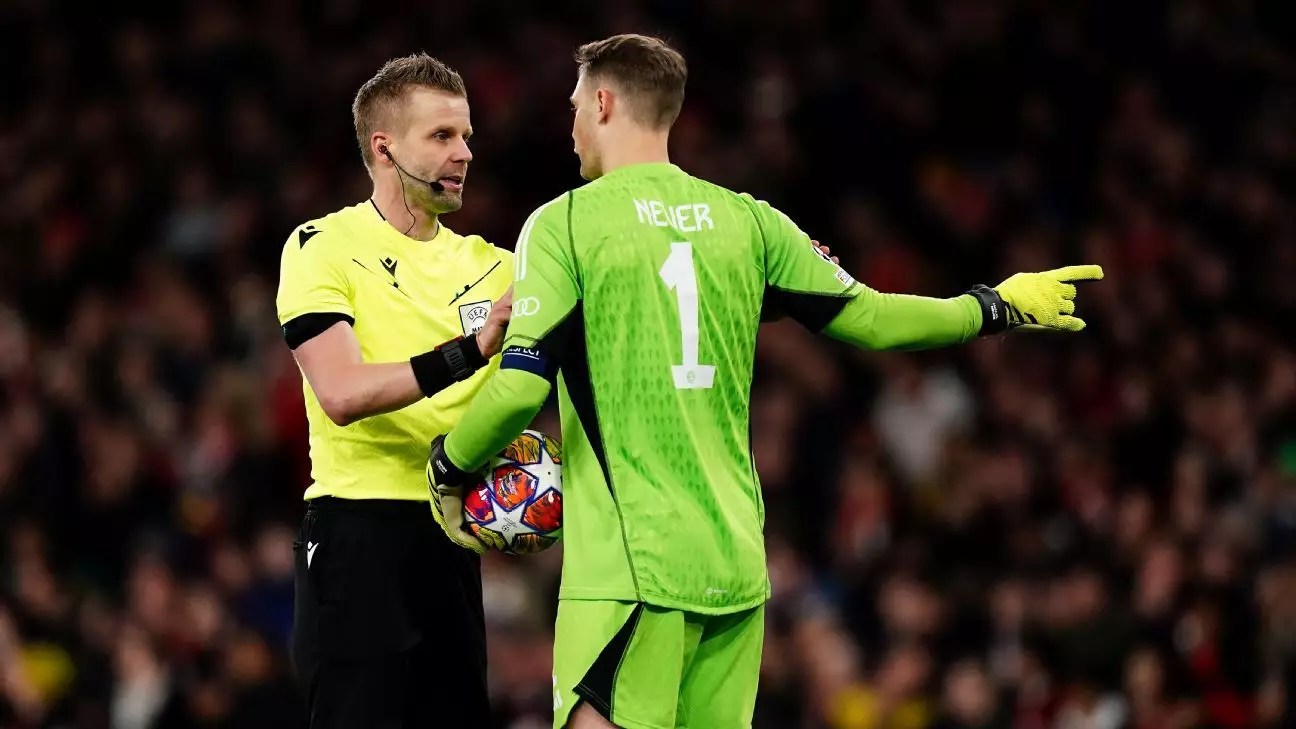Football’s lawmakers, the International Football Association Board (IFAB), recently announced a trial to limit the time goalkeepers hold onto the ball in order to prevent time-wasting tactics. The new protocol involves giving either a corner or a throw-in to the opposition if the goalkeeper exceeds the time limit. This trial is set to take place throughout the 2024-25 season and could potentially become a rule change for the 2026-27 season.
The existing rule prohibits goalkeepers from holding onto the ball for more than six seconds, with the punishment being an indirect free kick. However, referees have been hesitant to enforce this rule due to the significant advantage it gives to the opposing team. The IFAB believes that allowing goalkeepers to waste time in this manner is unfair as it prevents the opposing team from having a chance to regain possession.
Studies have shown that goalkeepers can release the ball for a counterattack in less than six seconds. In cases where the goalkeeper is legitimately unable to release the ball, it takes between six to eight seconds. However, if the goalkeeper chooses to waste time by falling to the ground and delaying the game, it takes 20 seconds or more to release the ball. This behavior has been deemed unacceptable by the IFAB and they are determined to address it through this new protocol.
The IFAB has approved a trial to increase the time limit to eight seconds with specific enforcement protocols. The protocol includes a countdown from five seconds to zero by the referee, similar to the format used in futsal and beach soccer. The restart resulting from a time-wasting offense will either be a corner kick or a throw-in, depending on the location of the goalkeeper when penalized. The goalkeeper will receive a warning for the first offense and a caution for subsequent offenses.
The trial will not be implemented in competitions involving top-tier domestic and international teams. It will be limited to lower-level competitions such as the Football League trophy, where the new protocol can be tested. The goal of the trial is to eliminate time-wasting tactics without penalizing goalkeepers who genuinely attempt to release the ball promptly.
The new protocol could have a significant impact on the flow of the game and prevent teams from using time-wasting tactics to secure a lead. It may also add an element of excitement for fans, as they engage with the countdown initiated by the referee. Overall, this trial represents a crucial step in modernizing the rules of football and ensuring fairness in the sport.
The new protocol for goalkeepers introduced by the IFAB is a positive step towards eliminating time-wasting tactics in football. By increasing the time limit for goalkeepers and implementing specific enforcement protocols, the IFAB aims to create a more fair and dynamic playing environment. While the trial may have limitations in terms of its scope, it has the potential to make a significant impact on the game and enhance the overall experience for players and fans alike.


Leave a Reply